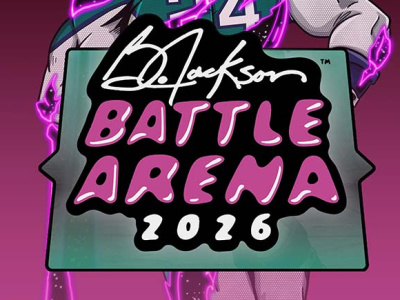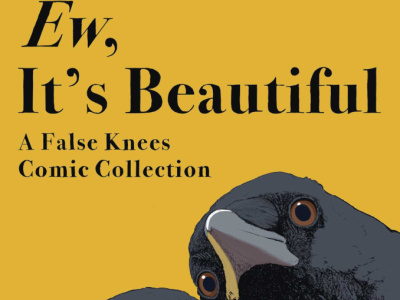
The ICv2 Awards are an on-line continuation of a tradition that began in Internal Correspondence, the print predecessor of ICv2, over a decade ago. These awards are given as a way of reflecting on the events of the year and to draw some conclusions from them. The ICv2 Awards are based entirely on the business impact of events on retailers, as determined by the editorial staff of ICv2.
Comic Company of the Year -- Tokyopop
Tokyopop is not the biggest comic publisher in the U.S. and certainly does not have a substantial market share in direct market comic shops, but few if any publishers can match Tokyopop's growth rate during 2003. Most of Tokyopop's growth has not taken place in comic shops but in mainstream bookstores and increasingly in new venues such as specialty retail chains (music, video, and electronics) and in the mass market.
The secret of Tokyopop's stunning success has been its ability to reach a much broader demographic than traditional American comic publishers. Put simply, Tokyopop has figured out how to sell comics to women and how to get tweens and teens interested in reading comic books for fun. Tokyopop, since it relies primarily on manga (both Japanese and Korean) for most of its source material, has an advantage over many American publishers since Asian comic publishers target many titles at female readers, segmenting the market into narrow demographic wedges for young girls, tweens, teens, single working women (office ladies), married women, and even older women. But just having the material available is not enough -- Tokyopop has been able to place its books where the potential audience shops -- in bookstores, record stores, electronics stores, and department stores.
Not all Tokyopop titles are targeted at female readers; many exploit the current interest in popular anime (Cowboy Bebop, Love Hina, etc.), but there is no denying that Tokyopop has done what no American-based publisher has been able to do since the demise of the American romance comic in the 1950s -- establish a solid female audience for its wares.
Tokyopop has also broadened its approach to include cinemanga based on popular properties with broad demographic appeal, ranging from Finding Nemo to the tween/teen-friendly Lizzie McGuire and Kim Possible series. Tokyopop has experimented successfully with the introduction of 'shonen ai' (literally 'boy love') titles such as Gravitation and Fake and launched a number of Korean 'manwha' series, which have proved to be very successful in the bookstore market where Tokyopop has dominated the Nielson BookScan Graphic Novel lists all year long. Never content to rest more than a second or two on its laurels, Tokyopop has consistently upped its output, to 350 volumes in 2003, and plans on a substantial 30-40% increase in the number of releases for 2004.
In 2002, Tokyopop came up with its 'authentic manga' format -- basically a translated Japanese tankoubon, which reads right to left in the Japanese format and provides readers with 200+ pages of comics in a compact format for a standard $9.95 cover price. Tokyopop's format, with minor variations, has become the preferred package for bookstore-bound graphic novels in general, and especially for manga.
Tokyopop was not the only comic book publisher to have a strong year in 2003. Marvel emerged from debt in 2003 as a licensing powerhouse with an ever-increasing ability to exploit its burgeoning list of movie properties in comic shops, bookstores and mass-market venues.
Under the leadership of Dan DiDio, DC scored some notable successes and laid the groundwork for future growth by signing a raft of topflight creators to exclusive contracts and reworking its core Batman and Superman titles. DC CEO Paul Levitz also got his man in Hollywood, a move that could pay big dividends in the future.
Dark Horse revamped its manga line with help from Digital Manga, and scored some major year-end successes with Trigun, Hellsing, and The Ring.
Viz LLC took last year's ICv2 Comic Product of the Year, Shonen Jump, to new heights of circulation, and launched a number of best-selling new manga series while reprinting many of its classic manga titles in the new inexpensive $9.95 trade paperback format.
{IMAGE_2}
Comic Product of the Year -- Batman: Hush
There was lots of competition for this award in 2003, but in the end we gave it to Jim Lee and Jeph Loeb's Batman run, which ended with Batman #619, and which topped the charts in September by shattering the 200,000-copy barrier with an amazing estimated total of 233,775. Unlike Marvel, DC has continued to reprint sold out comic books, and the wisdom of that policy is borne out by the fact that Batman #619 sold an additional 77,736 copies in October -- good enough for the #17 position in October -- the only time in the history of ICv2 that a periodical comic has topped the charts in one month and then made it into the Top 20 in the following month.
But we chose Batman Hush for more than just its circulation. It represents DC's commitment to try and find the 'perfect' combination of creative talents for its key Batman and Superman titles, a process that is always going to be imperfect and a work in progress, but which could eventually lead DC back to a paramount position in the industry -- especially if the Batman and Superman films, currently in varying stages of development in Hollywood, are able to revitalize what were the original comic book superhero film franchises.
As successful and potentially important as Batman Hush was, there were a number of other key comic releases in 2003, which made this a most difficult decision. Craig Thompson's Blankets, published by Top Shelf, has already sold over 20,000 copies at $29.95, and has enjoyed unprecedented success for a serious autobiographical graphic novel. Blankets has garnered excellent notices in a wide variety of publications and may eventually be seen as one of the key graphic works of this decade.
On a purely commercial basis, the long-awaited Marvel/DC crossover JLA/Avengers series with its $5.95 cover price probably stimulated more sales for direct market retailers than any other comic property in 2003 -- it just goes to show what can happen when the top two publishers collaborate on the right project with the right creator (in this case George Perez).
Taking into account all markets, Neil Gaiman's Sandman: Endless Nights may well end up as the top dollar comic of this season. Certainly its success and DC's marketing/PR blitz (see 'Marketing Campaign of the Year') have had a major effect on the industry.
For Part 2 of our ICv2 Comic Awards, see 'ICv2 2003 Comic Awards, Part 2.'
And for the previous year of the ICv2's Comic Awards, please see 'ICv2 2002 Comic Awards, Part 1' and 'ICv2 2002 Comic Awards, Part 2.'







